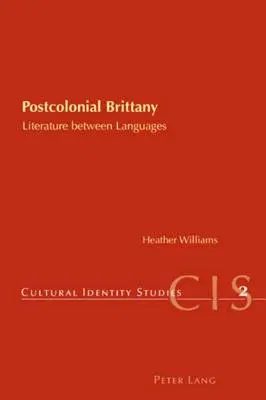Heather Williams
(Author)Postcolonial Brittany: Literature between LanguagesPaperback, 13 April 2007

Qty
1
Turbo
Ships in 2 - 3 days
In Stock
Free Delivery
Cash on Delivery
15 Days
Free Returns
Secure Checkout

Part of Series
Cultural Identity Studies
Print Length
194 pages
Language
English
Publisher
Peter Lang Copyright AG - Ipsuk
Date Published
13 Apr 2007
ISBN-10
3039105566
ISBN-13
9783039105564
Description
Product Details
Author:
Book Format:
Paperback
Country of Origin:
CH
Date Published:
13 April 2007
Dimensions:
22.86 x
15.24 x
1.07 cm
Genre:
French
ISBN-10:
3039105566
ISBN-13:
9783039105564
Language:
English
Location:
Bern
Pages:
194
Publisher:
Series:
Weight:
267.62 gm